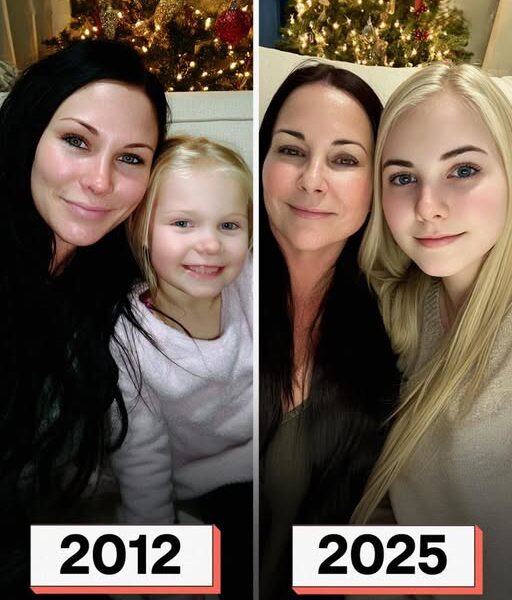At our first family dinner, she made sure everyone got a full plate—except me. While the others had lasagna, I got a small bowl of lettuce. She smiled and said, “You have such a pretty face. It’s a shame you let your body ruin it.”
I smiled back, took a bite, and decided right then—I wouldn’t match her cruelty. I’d meet it with clarity.
At the next dinner, I brought her a gift: a perfectly wrapped box. She opened it in front of everyone and found a full-length mirror with a note that read, “Since you’re so focused on appearances, I figured you’d want to see your own.”
Her fake laugh was tight, her face pale. It stung, even if she pretended otherwise. I hadn’t done it to humiliate her—just to make a point: I wouldn’t stay silent while she cut me down anymore.
But that moment didn’t end her behavior. It ignited a quiet war.
She started “forgetting” diet brochures in the guest bathroom. Made toasts about “self-control.” Commented on portion sizes disguised as health advice. And through it all, my husband Arman brushed it off. “She’s old-fashioned,” he’d say. He didn’t see that her words were blades, sharpened over decades of bitterness and projection.
But it wasn’t just her voice that hurt. It was every echo from my past — my gymnastics coach calling me “stocky,” the roommate who joked that I had a “refrigerator body,” the ex who said we should “get healthy together.”
So I stopped trying to fix myself to please anyone else. Instead, I started therapy.
Not to lose weight, but to lose the need for permission. To understand why her cruelty still reached me when I knew it wasn’t truth. Slowly, I began to unlearn what I’d been taught about shame.
And then something shifted.
When she said, “That blouse is tight around the arms,” I smiled. “Yes. I chose it because I feel strong in it.”
When she whispered, “You’d be stunning if you dropped 20 pounds,” I replied, “And you’d be kind if you dropped the commentary.”
She froze. For the first time, she heard herself.
My sister-in-law Nandini later asked, “How do you stay so calm?”
“Practice,” I told her.
Months passed. The comments slowed. And then one day, they stopped altogether.
It happened after a lunch one summer—grilled chicken, rice, no remarks, no tension. After everyone left, she asked me to stay behind. Her voice was smaller than I’d ever heard.
“The doctor found a mass on my kidney,” she said, twisting a dish towel in her hands. “They think it’s early. Surgery, maybe chemo.”
My anger fell away. For the first time, I saw not a tormentor—but a frightened woman.
“I know I’ve said cruel things,” she whispered. “I thought I was preparing you for the world. But all I did was repeat what was done to me.”
Then she said my name—really said it. “I’m sorry, Meera.”
The surgery went well. She didn’t need chemo. But something fundamental changed between us. She began asking about my work, my friends, my writing. She started catching herself mid-comment and apologizing.
Months later, she handed me an envelope. Inside was a photograph of her as a young woman in a blue sari, beautiful but stiff. On the back, written faintly in pencil, were the words: “Hold in your stomach. You look huge.”
That’s when I understood—the enemy wasn’t her. It was the inheritance. The generational conditioning that told women their worth was measured in inches.
A few weeks ago, she invited me to speak at a women’s group she joined—older women exploring body image and self-worth. “You’ve taught me more than you realize,” she said.
The mirror I gave her didn’t fix her. But it cracked something open. And from that fracture, empathy finally grew.
Not every story ends in revenge. Some end in recognition. Some in repair.
She didn’t become perfect. I didn’t become saintly. But we both became something better—human.
If you’ve ever had to confront cruelty, build boundaries, or heal from the voices that tried to shrink you, remember this:
It’s never too late to stop passing down the pain—and start writing a different ending.


